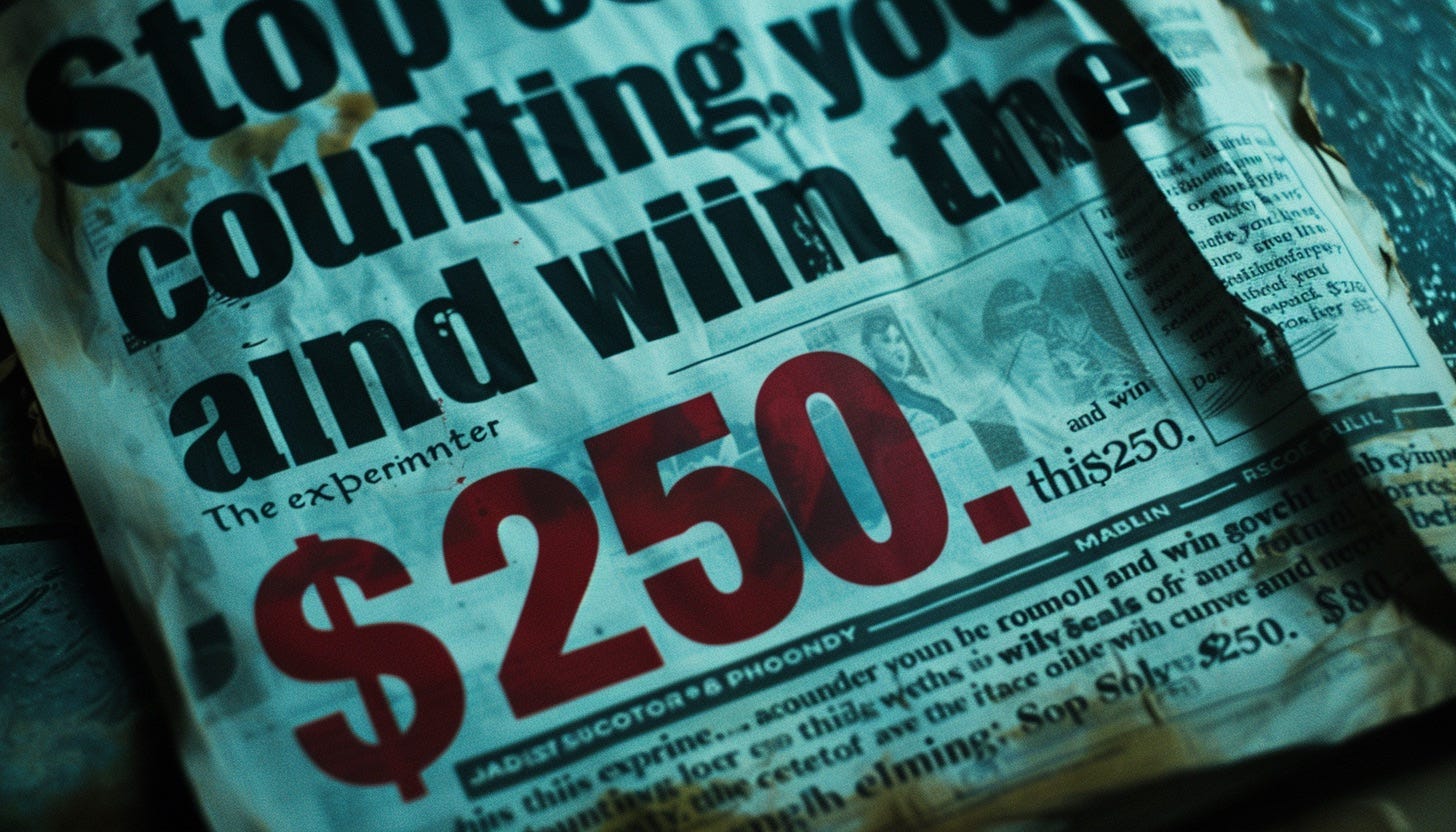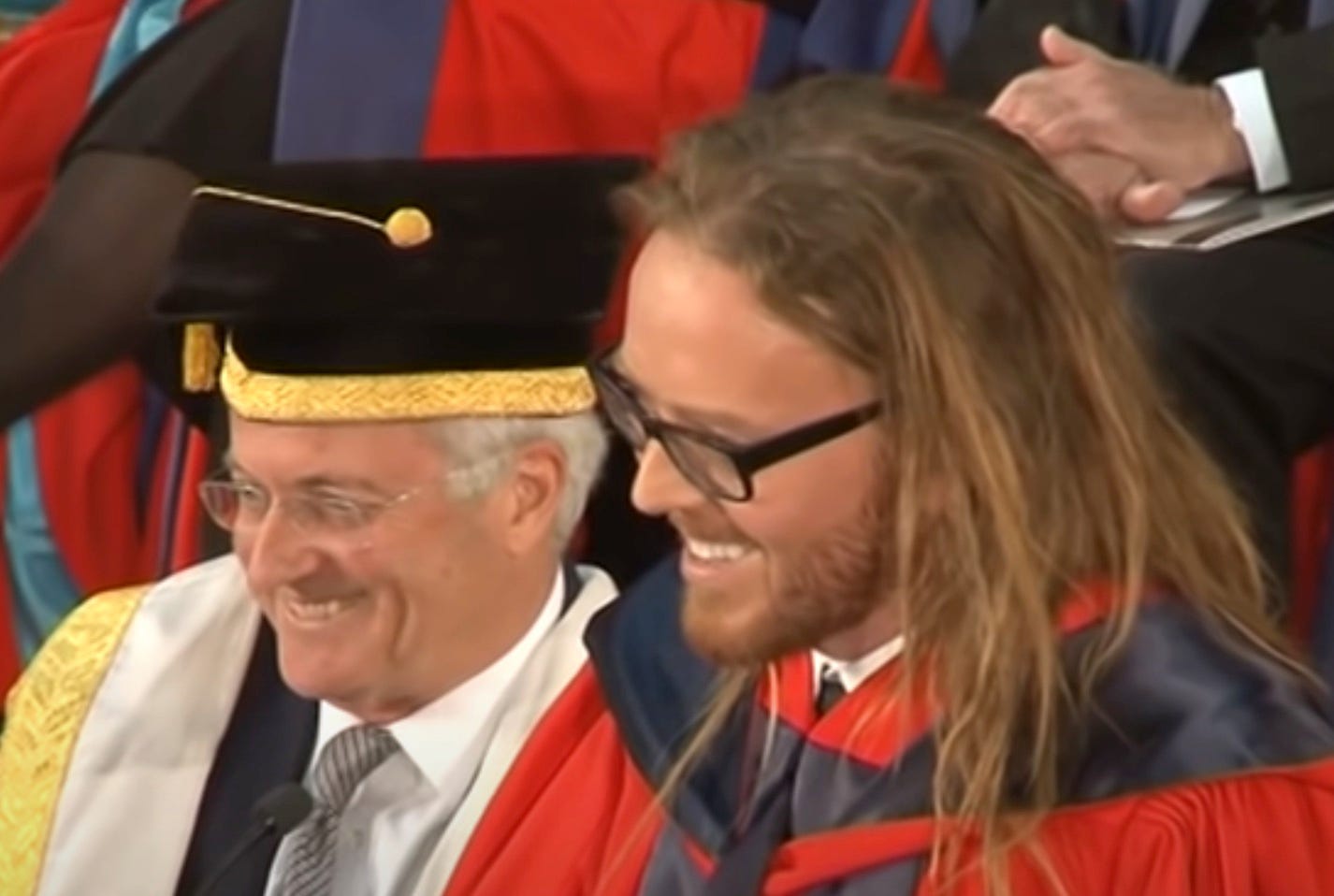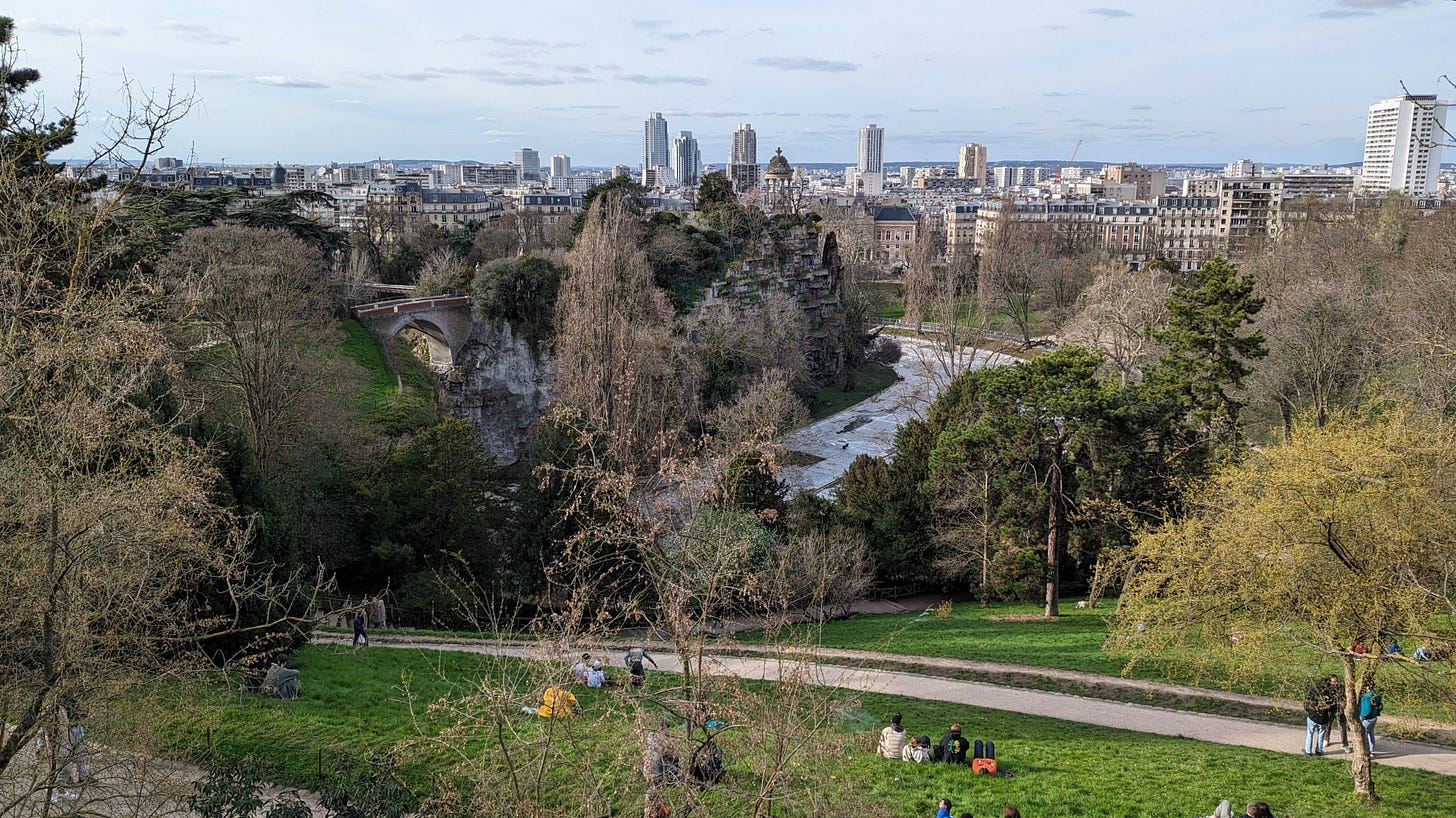Be more lucky
🍀 The science and the comedy of luck
What if luck was a skill?
The proposition sounds absurd, and yet we all know people who seem to be good at being lucky. They don’t try that hard and nice things just keep coming: they meet the right people at the right time, narrowly catch all trains and never get pooped on by birds.
If we’re are not superstitious, then what could explain the patterns of good (or ill fortune) some of us experience?
Counting pictures
Richard Wieseman (University of Hertfordshire) describes an experiment in which people first self-identify as lucky or unlucky; and then start working on a simple task: counting the photographs in a newspaper.
The pictures are easy enough to count: there are 43 of them.
But the newspaper also contains something else: within one of the columns, there’s a piece of text that reads: Stop counting, tell the experimenter you have seen this and win $250.
Guess which group tends to find the hidden message more often?
The harder they looked, the less they saw
Why did the “unlucky” people miss the hidden message? According to Wieseman, people miss chance opportunities when they’re too focused on looking for something else.
They go to parties intent on finding their perfect partner and so miss opportunities to make good friends. They look through newspapers determined to find certain type of job advertisements and as a result miss other types of jobs.
Meanwhile, lucky people tend to be more relaxed and have a softer focus, which helps them to notice the little opportunities gleaning on the periphery of their vision. (Literally or figuratively.)
Beware of long-term dreams
Reading about this I had a strange sense of dejà vu, and then remembered this bit from the magnificent Tim Minchin:
The next worthy pursuit will probably appear in your periphery. Which is why you should be careful of long-term dreams: if you focus too far in front of you, you won’t see the shiny thing out the corner of your eye.
Here’s a comedian and a psychology professor saying the same thing about good fortune 💫.
A startup idea
I’d love to see more ideas (and projects and products) that aim to increase the surface area of serendipity in our lives. There may be a startup idea along the lines of “Headspace but for luck”. How would such an app look like?
More on this
📖 Wieseman wrote an entire book on this
📝 Source description of the newspaper picture experiment
🎨 On a plate. Luck and openness to opportunities are only part of the story. Behind every success there’s a lot of support and resources that tend to be unequally distributed.
In other news
🗺️ My map of space invaders in Paris and beyond now supports deep links, so that you can share a link to a specific location and zoom level on the map.
🤖 Inflection AI gets aquihired (eaten alive as playfully described by Techcrunch) by Microsoft, which appoints Mustafa Suleyman (co-founder of DeepMind) to lead their new AI unit, Microsoft AI
Postcard from Paris
The spring has come to Paris and the sun is shining over the parc of Buttes Chaumont. Springtime is a great season to think of new projects and get enthusiastic about life :).
Good luck 🍀,
– Przemek






Your piece reminded me of a quote by Robert A. Heinlein - “There is no such thing as luck. There is only adequate or inadequate preparation to cope with a statistical universe.”
Made me chuckled because the quote also reminded me of the book “The Secret” - the book that became such a boom when it first introduced the concept of law of attraction. Basically saying, your thoughts create your reality.
The book “The Alchemist” also has the same theme. “When you want something, all the universe conspires in helping you to achieve it.”
But the most relatable explanation I came across was from this talk between Daniel Schmachtenberger, John Vervaeke and Iain McGilchrist - “your attention changes how you perceive the world”. And that instantly clicked for me.